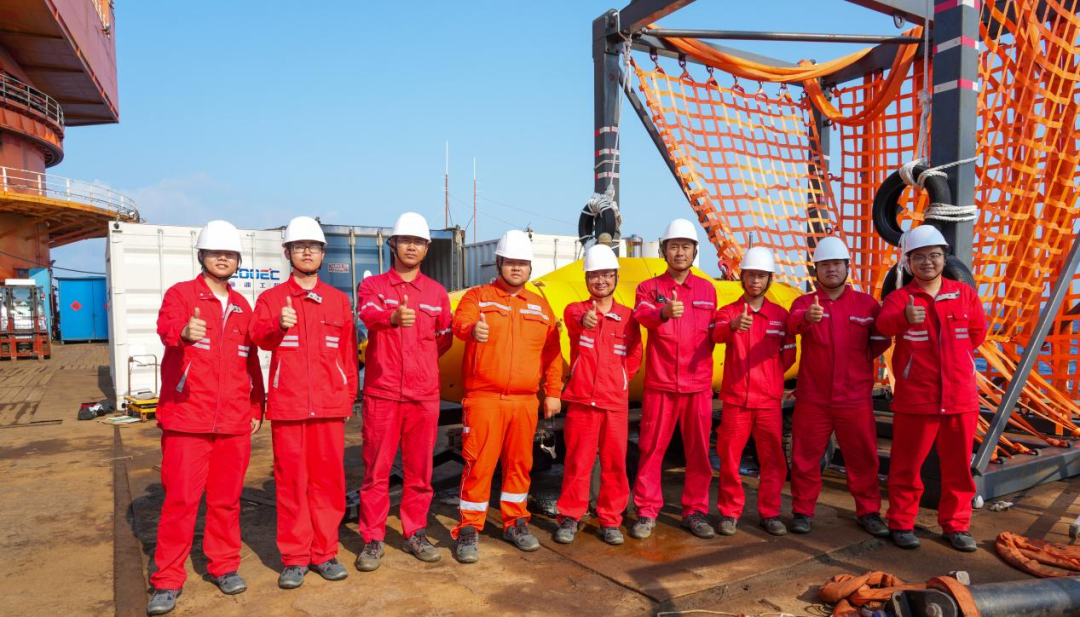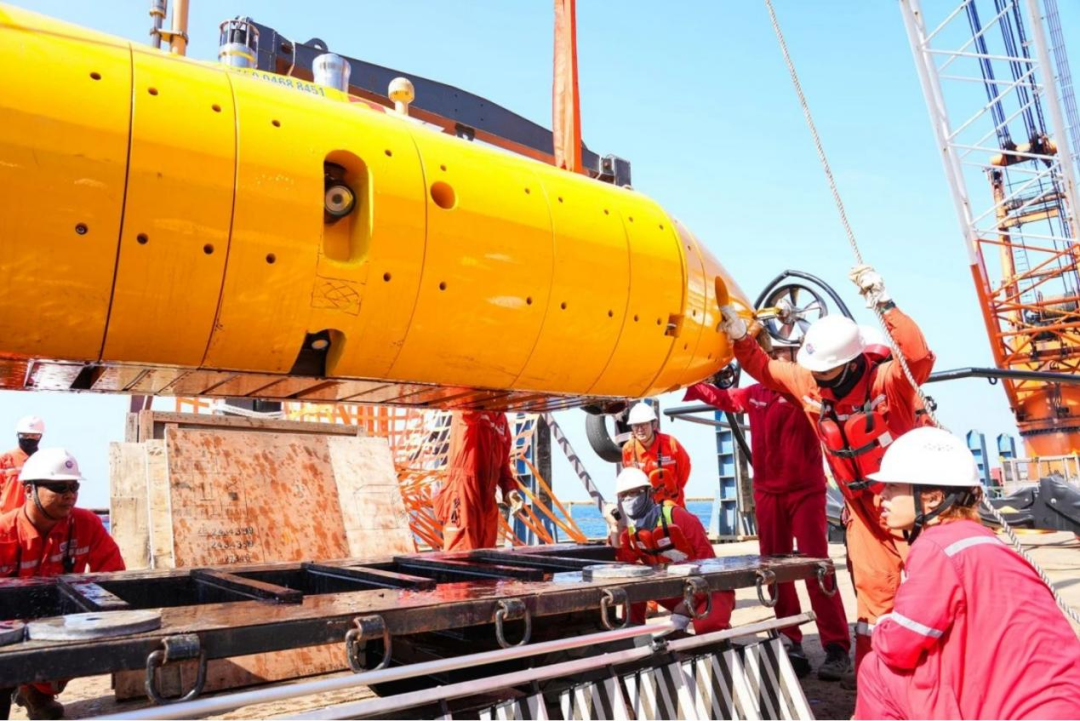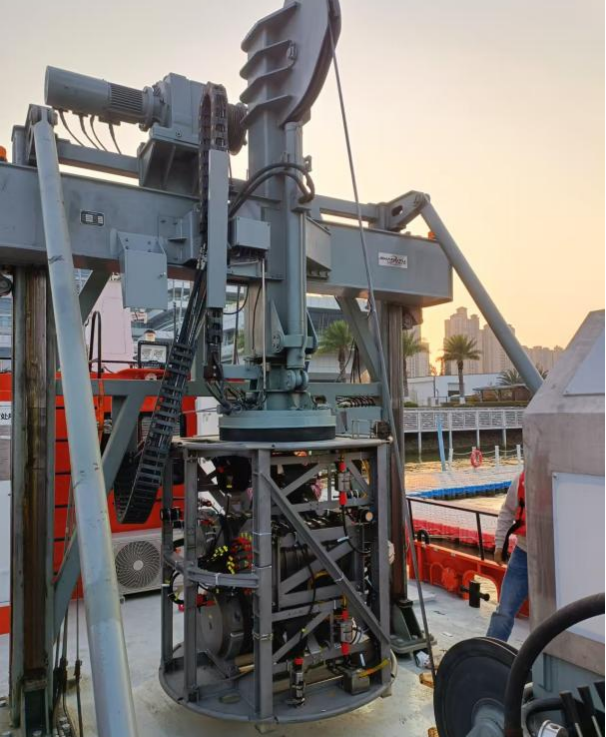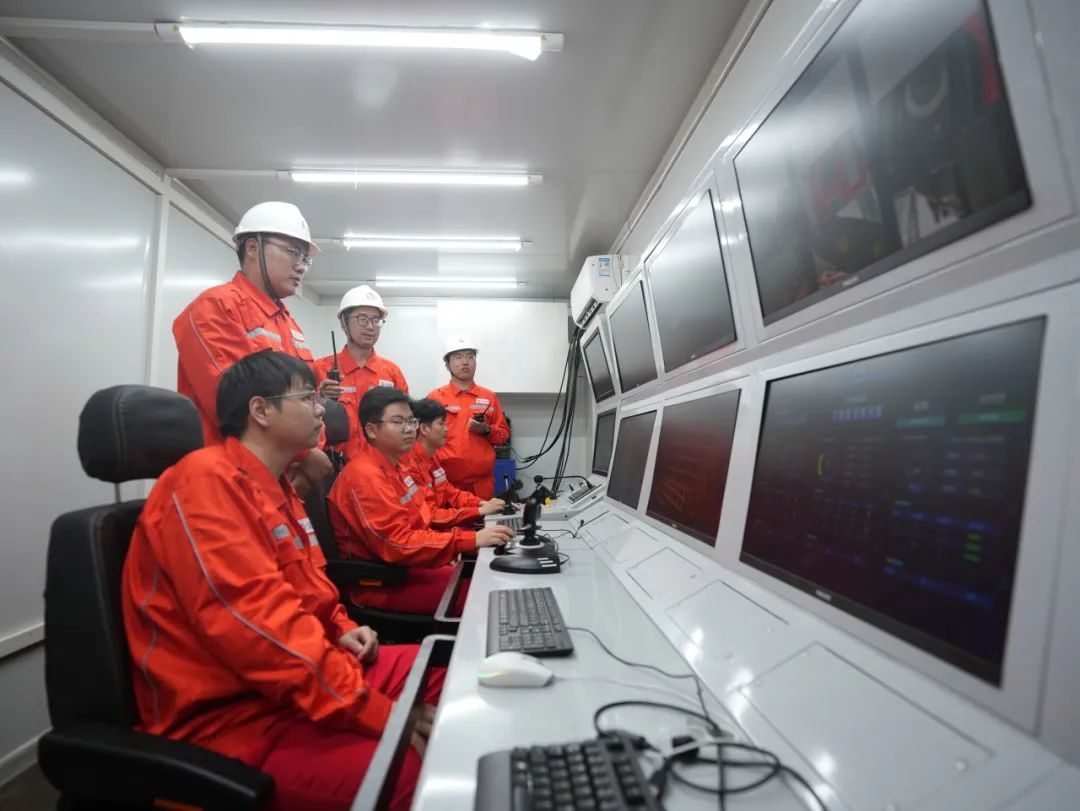
System Through Successful Sea Trials In a major milestone, China's indigenously developed "Haiwei" intelligent monitoring system for deepwater pipeline laying has completed sea trials in Wenchang waters, Hainan. The system's high-seakeeping unmanned vessel, autonomous remotely operated underwater vehicle (ROV), and optical communication modules all met design specifications, marking a critical breakthrough in this landmark project. Led by Prof. LI Ye of the National Key Laboratory of Intelligent Ocean Vehicle Technology from the College of Shipbuilding Engineering at Harbin Engineering University(HEU), the research team delivered the "Pilot" autonomous ROV, repeaters, and the integrated monitoring architecture for the Haiwei system.

The technical team is conducting field operations at the test

The technical team conducted pre-deployment inspections on the "Pilot" autonomous remotely operated underwater vehicle
The "Sea Guardian" system, developed over five years, has achieved a groundbreaking integration of four innovative technologies - unmanned surface vessel (USV), autonomous remotely operated vehicle (AROV), relay station, and optical communication - for intelligent monitoring of deepwater pipeline installation. The system includes two domestically developed milestone technologies: the "Guardian" USV, China's first 18-meter class unmanned vessel specifically designed for deepwater pipeline monitoring, and the "Pathfinder" AROV, the nation's first indigenously developed 1,500-meter rated deepwater pipeline inspection underwater vehicle. This technological breakthrough represents significant progress in China's intelligent and unmanned deepwater oil and gas equipment development, marking an important step forward in the country's marine engineering capabilities.

Repeaters

The team carried out remote control in the central control room of the "Haiwei" system
